George Skurla 1921-2001 led the 1600-man team that built the historic Apollo 11 lunar landing module
http://www.croatia.org/crown/articles/10984/1/George-Skurla-1921-2001-led-the-1600-man-team-that-built-the-historic-Apollo-11-lunar-landing-module.html
By Nenad N. Bach and Darko ®ubrinić
Published on 05/17/2017
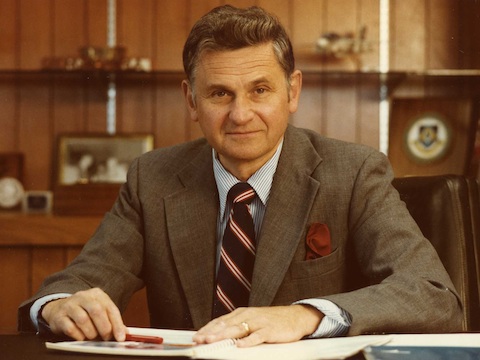
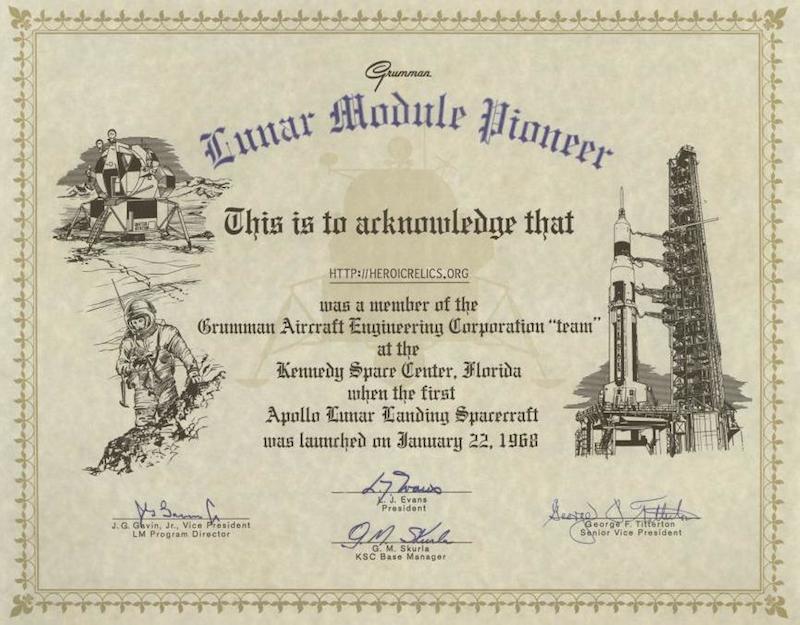
A letter of acknowledgemnt from the Kennedy Space Center (KSC), with the signature of G. M. Skurla at the bottom.
Source heroicrelics.org
Formated for CROWN by Darko ®ubrinić
Distributed by www.Croatia.org . This message is intended for Croatian Associations/Institutions and their Friends in Croatia and in the World. The opinions/articles expressed on this list do not reflect personal opinions of the moderator. If the reader of this message is not the intended recipient, please delete or destroy all copies of this communication and please, let us know!
 | In 1965, George Skurla became director of operations for Grumman at the National Aeronautics and Space Administration's (NASA) Kennedy Space Center (KSC). In that position, he brought together the 1,600-man Grumman team responsible for the final assembly, test and pre-launch checkout for the Apollo lunar module vehicle. Skurla led the team that built the historic Apollo 11 lunar landing module. The lunar modul spacecraft, which was designed, developed and produced by Grumman co., was the final stage in NASA's Apollo Program which landed American astronauts on the surface of the moon. The family of Skurla (©kurla) has Croatian roots, from Herzegovina, near the environs of the Dubrovnik area. |
Director of operations for Grumman at the NASA Kennedy Space Center (KSC)
George M. Skurla (1921-2001), after completing his college training, he joined the Aircraft Engineering Corporation as an apprentice engineer. In 1965, he became director of operations for Grumman at the National Aeronautics and Space Administration's (NASA) Kennedy Space Center (KSC). In that position, he brought together the 1,600-man Grumman team responsible for the final assembly, test and pre-launch checkout for the Apollo lunar module vehicle. Skurla led the team that built the historic Apollo 11 lunar landing module. The lunar modul spacecraft, which was designed, developed and produced by Grumman co., was the final stage in NASA's Apollo Program which landed American astronauts on the surface of the Moon. |

In 1973, Skurla became general manager of Calverton operations and revitalized production of the F-14 Tomcat. Elected president of Grumman Aerospace Corporation in 1974, he held this post until becoming president of the parent organization, the Grumman Corporation, in 1985. George Skurla was a Croatian-American whose parents were from Herzegovina. Skurla was enshrined in the Michigan Aviation Hall of Fame on April 19, 2008. In his honor, the "George M. Skurla Outstanding Alumni Award" has been established by the Florida Institute of Technology. The same institute has the "George M. Skurla Building" (or George M. Skurla Hall) as a part of its campus. Sources: www.airzoo.org, www.angelfire.com |
| SKURLA, GEORGE Appolo Space Program George Skurla, 80, a retired Grumman Corporation president known for his leadership during the heady days when the company's lunar module landed on the moon, died September 2, 2001 at a hospital in Melbourne, Florida. He had pneumonia. 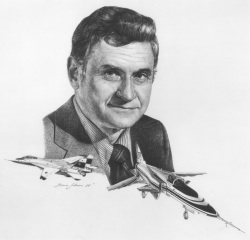 Grumman's lunar modules shuttled Neil Armstrong and Buzz Aldrin from Apollo 11 toward the "giant leap for mankind" in 1969 and, a year later, returned the crew of Apollo 13 to Earth when their main spacecraft became disabled. As director of operations at Kennedy Space Center in Florida in the late 60’s, Mr. Skurla managed 1,600 employees responsible for assembling and testing the lunar modules from parts made at Grumman headquarters in Bethpage, N.Y. He began his 42-year career at Grumman in 1944 as an apprentice engineer and was named company president in 1985. Grumman has since become part of Los Angeles-based Northrop-Grumman. George Skurla was a Croatian-American whose parents were from Herzegovina. As head of Grumman, he was one of the key men behind the Appolo program. Source Adam Eterovich Bracanin |

Source heroicrelics.org
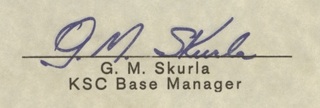
KSC (i.e., Kennedy Space Center, Florida) Base Manager

Source www.stargate-chronicles.com
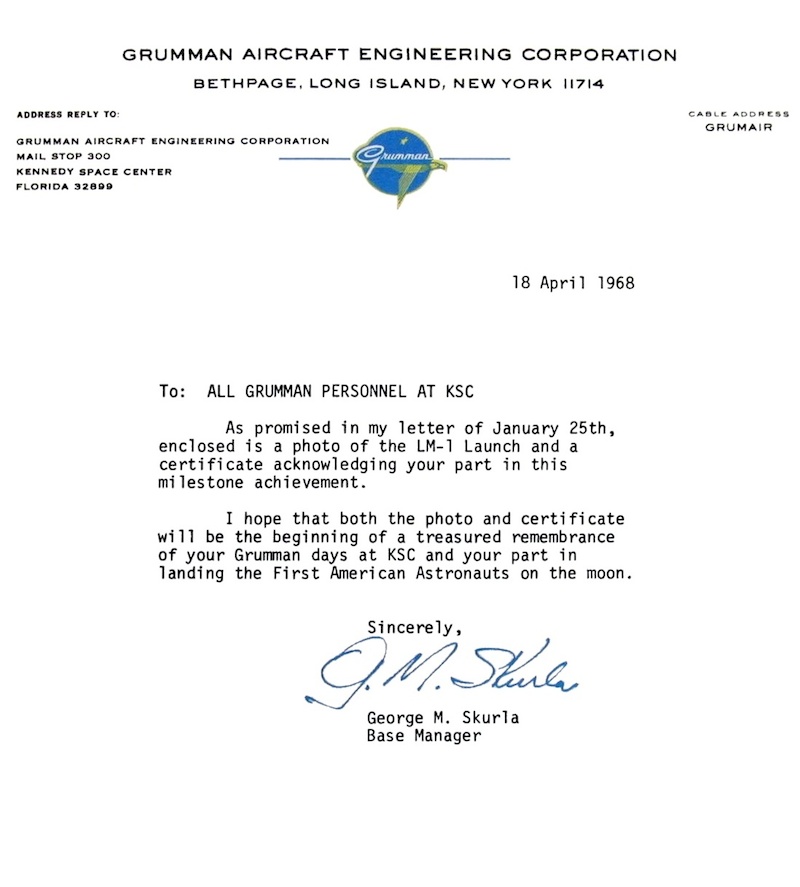
Certificate signed by George M. Skurla, the KSC (Kennedy Space Center) Base Manager.
Source heroicrelics.org
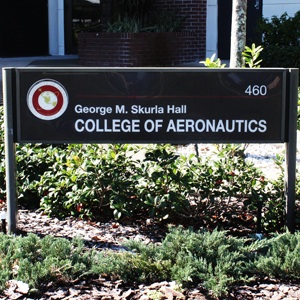 George M. Skurla Hall at the Florida Institute of Technology Skurla Hall is the home of the School of Aeronautics at Florida Tech. It contains many classrooms, computer labs, faculty offices, and a large auditorium. Florida Institute of Technology Skurla Hall |
Formated for CROWN by Darko ®ubrinić
Distributed by www.Croatia.org . This message is intended for Croatian Associations/Institutions and their Friends in Croatia and in the World. The opinions/articles expressed on this list do not reflect personal opinions of the moderator. If the reader of this message is not the intended recipient, please delete or destroy all copies of this communication and please, let us know!